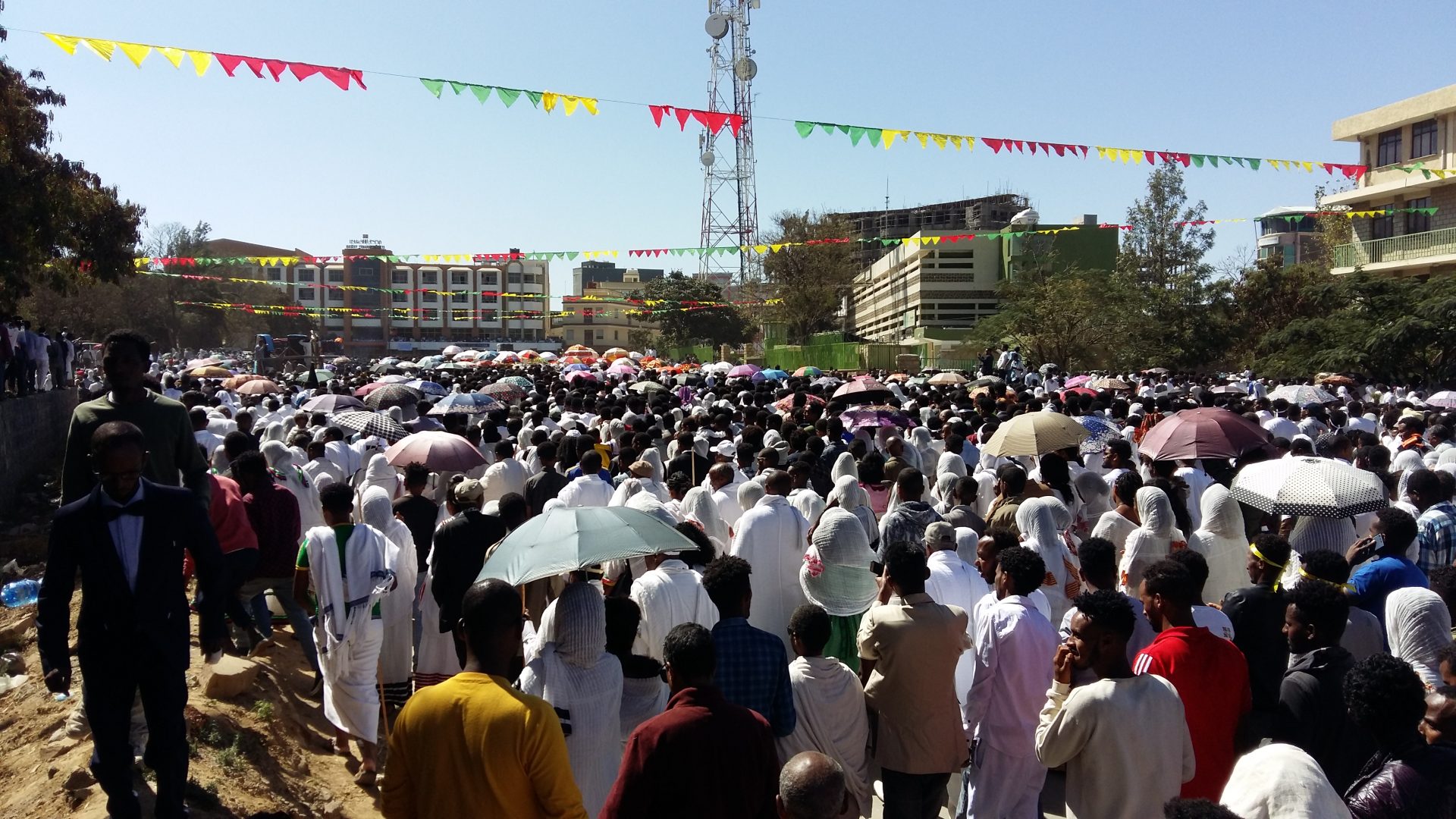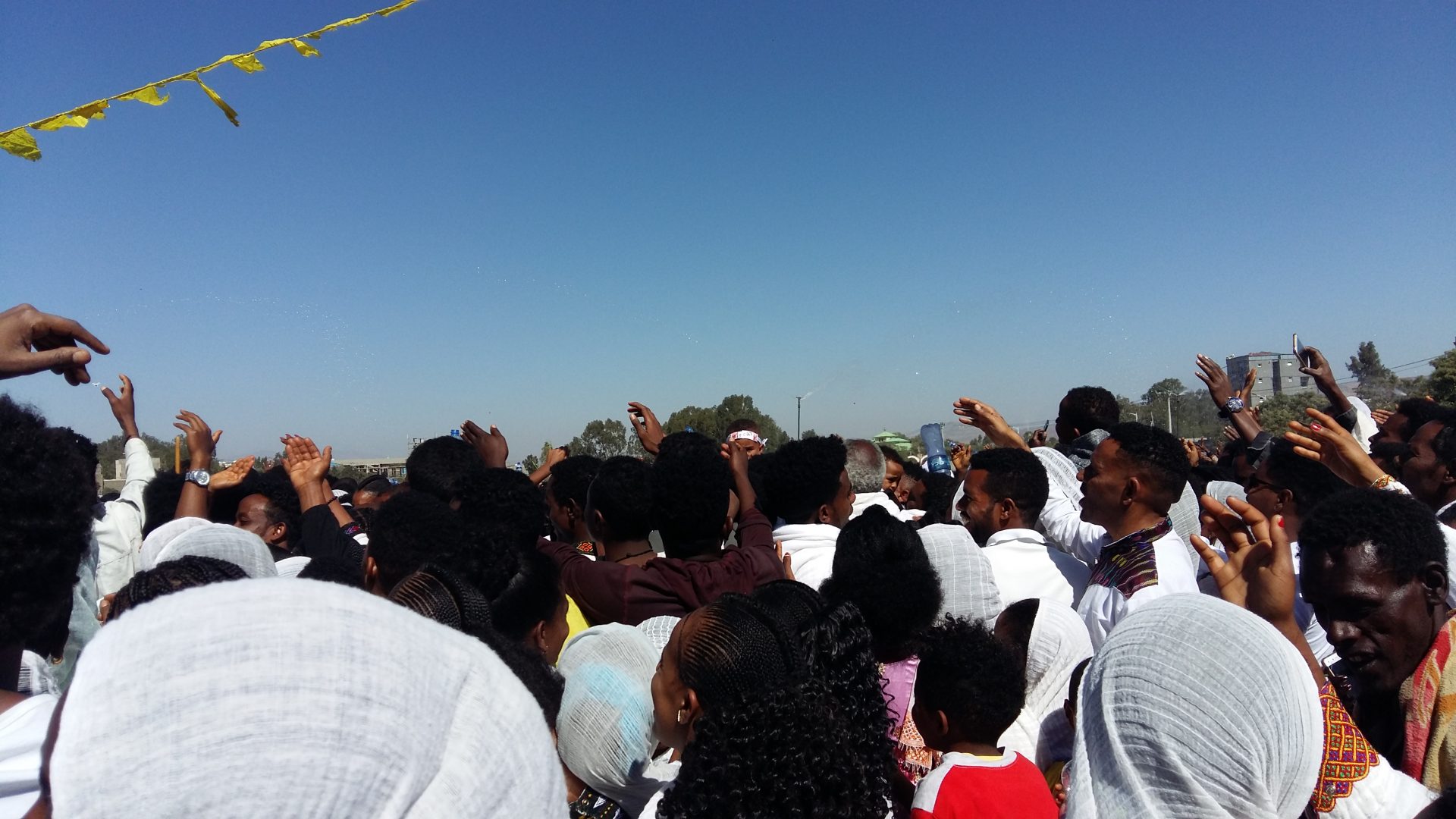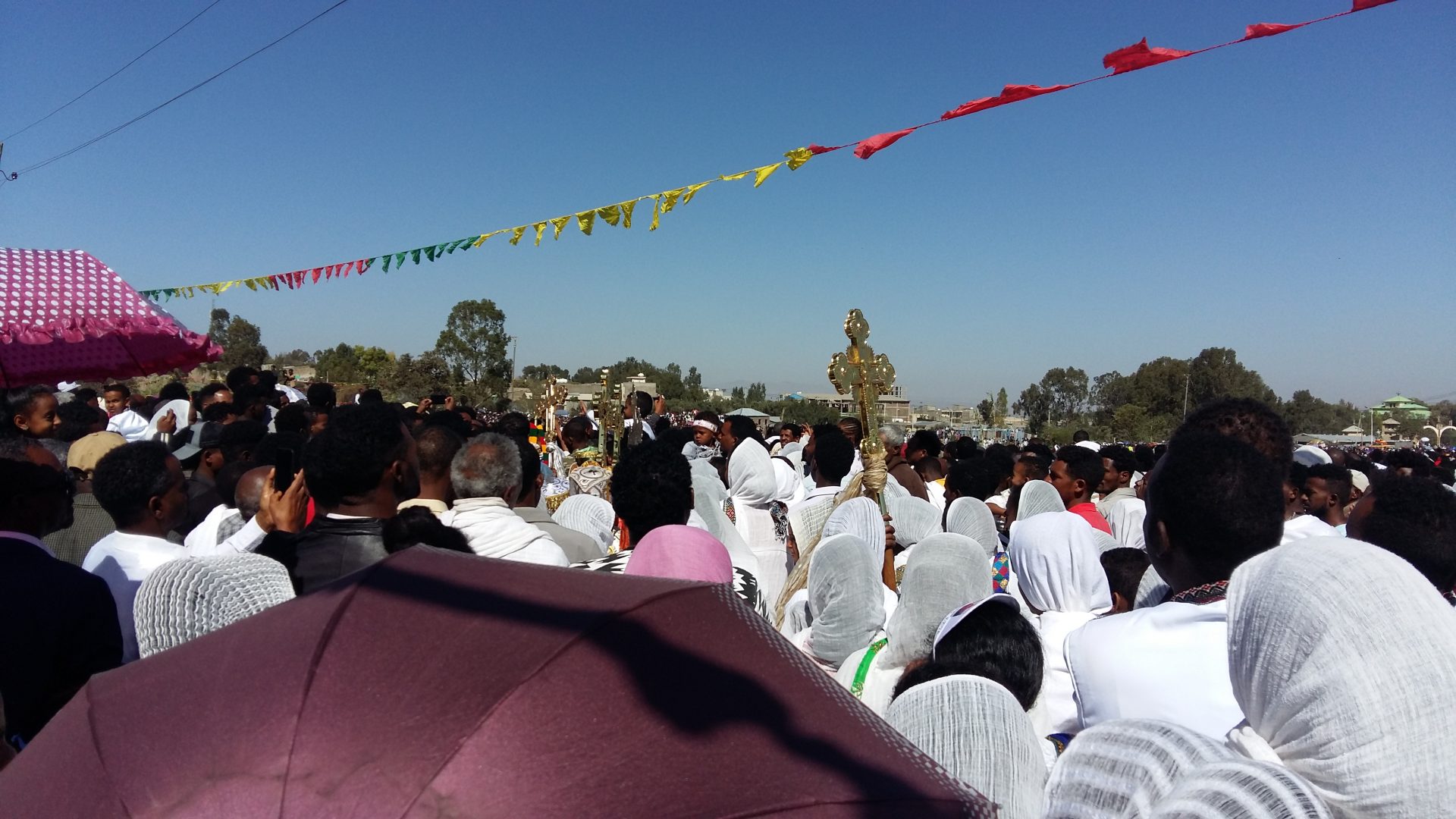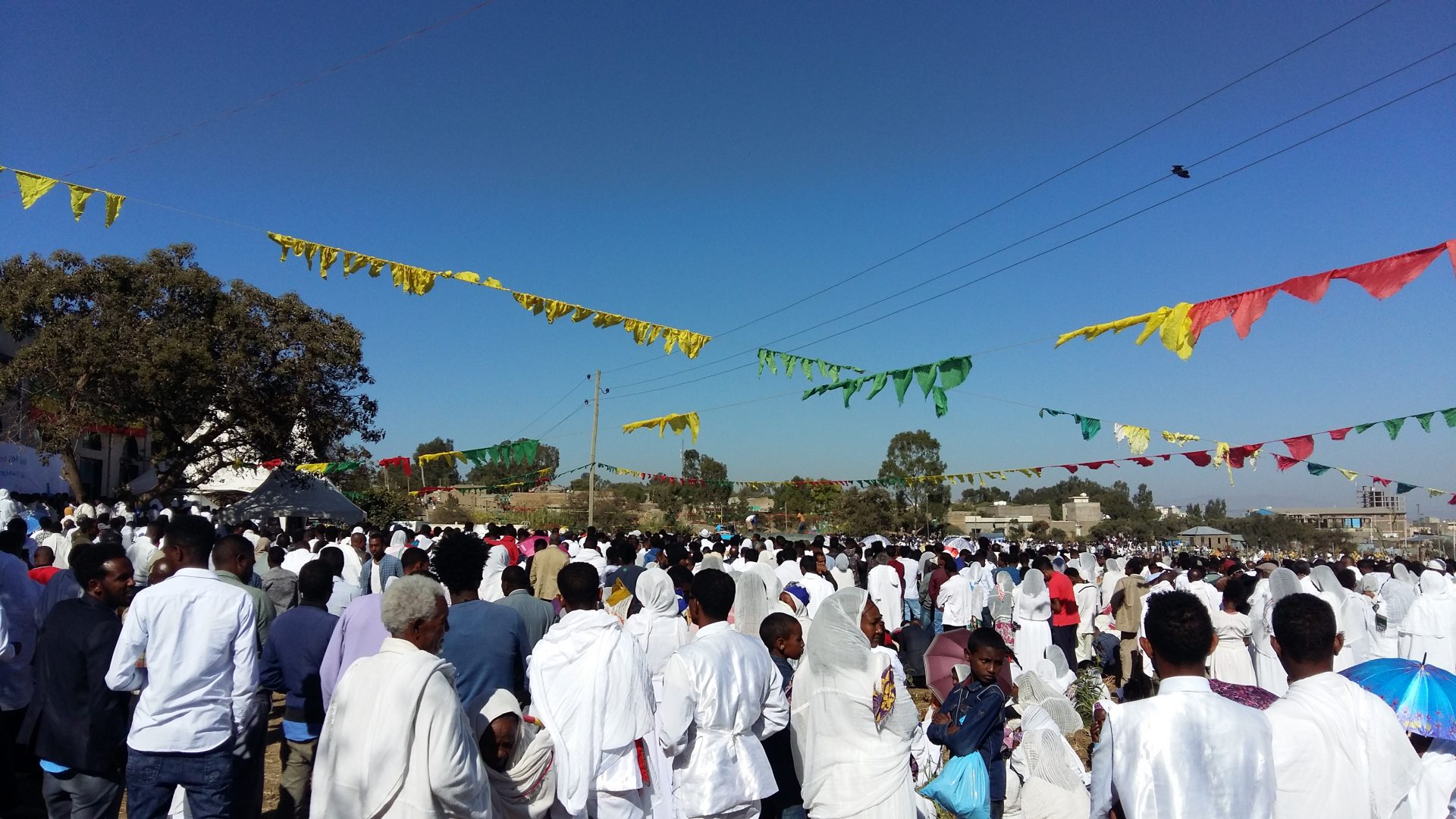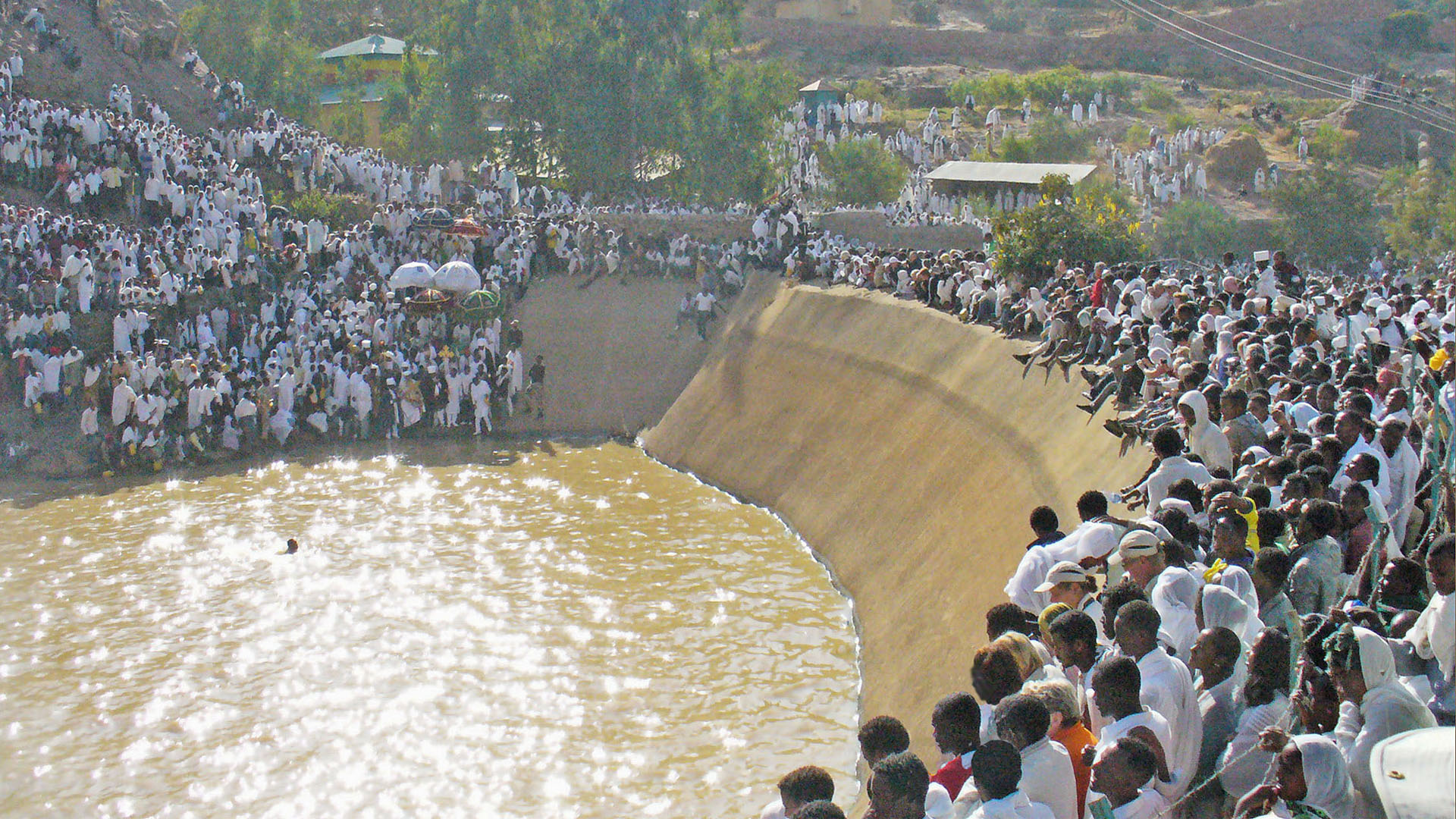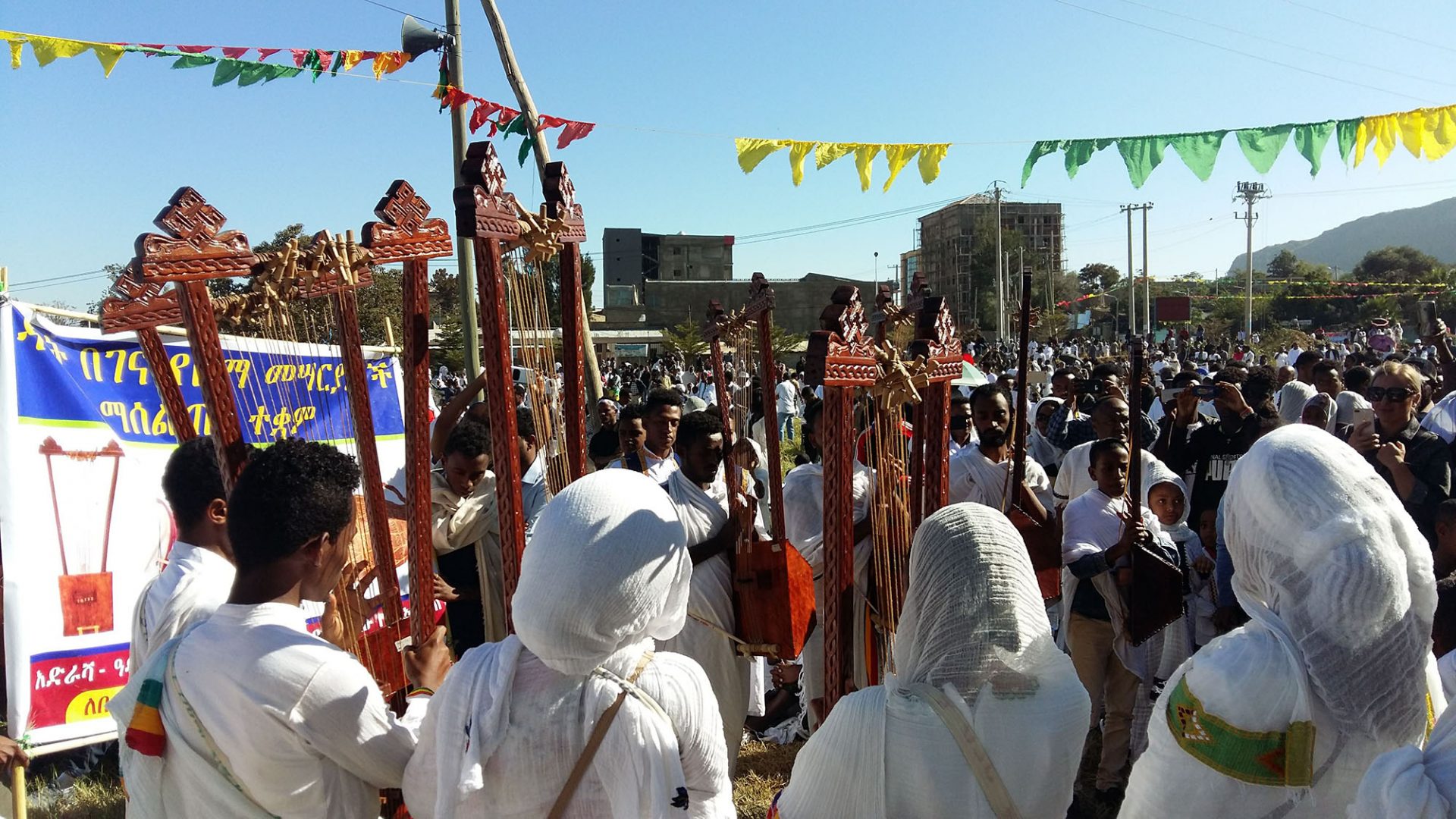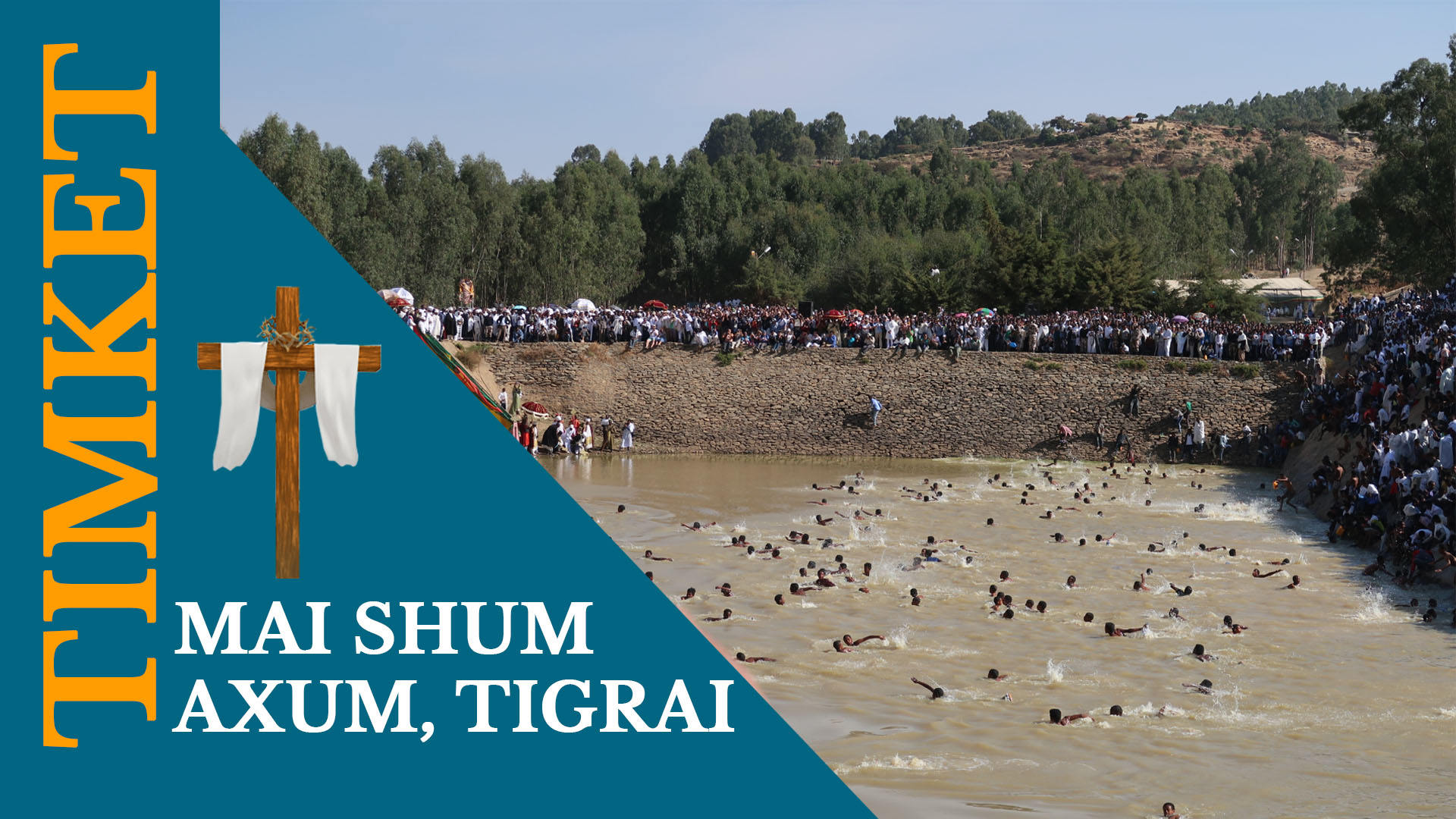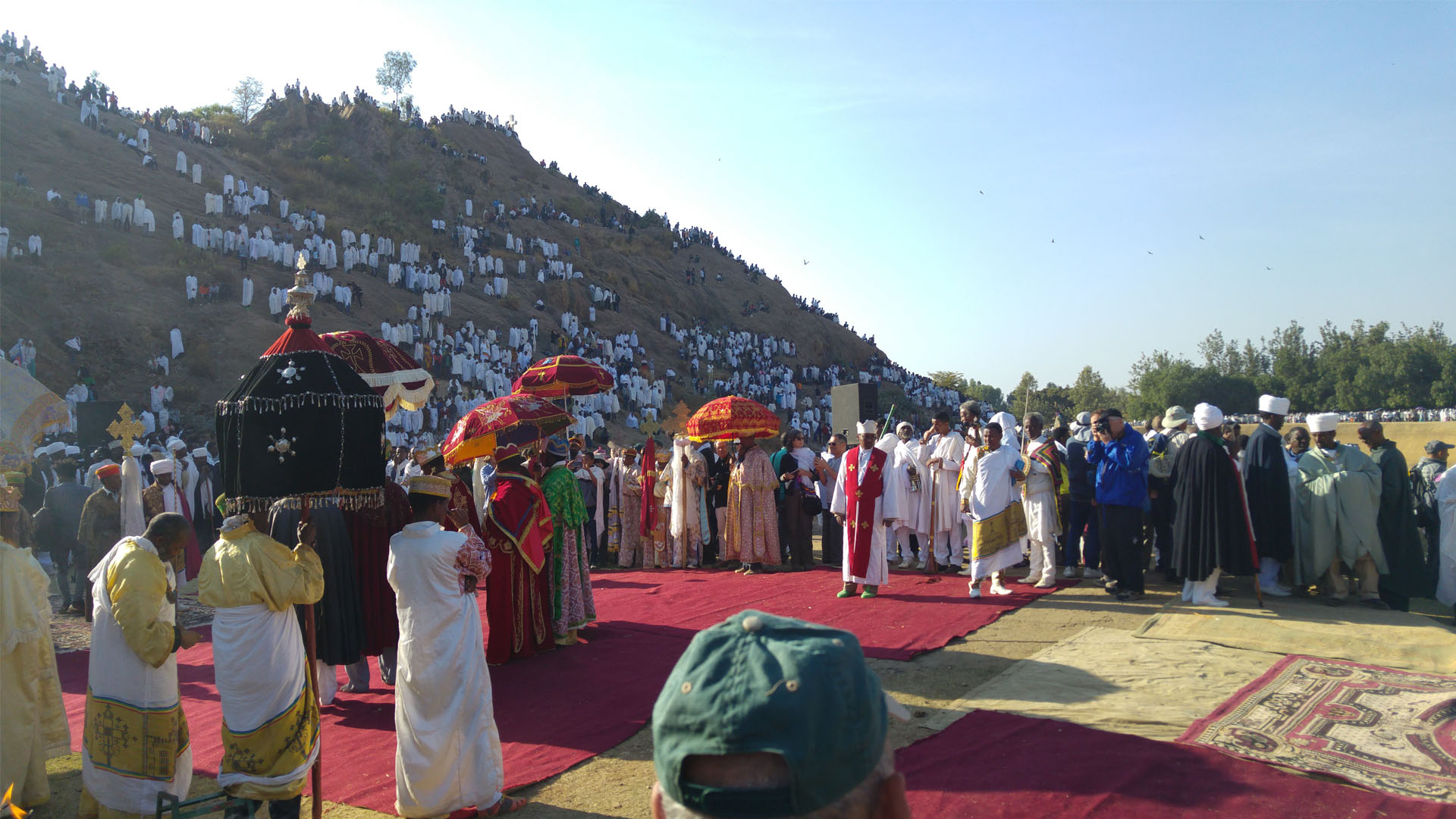One of the most important festivals on the Ge’ez calendar, Timket (also Timqet, Tigrigna: ጥምቀት) is a very colorfully celebrated religious event in Tigrai. It is an Orthodox Christian occasion to mark the baptism of Jesus Christ in the River Jordan. People travel to Tigrai to take part in Timket which involves processions, singing, and dancing.
The word Timket, a Ge’ez word that means “to reveal”, refers to the revelation associated with the Church’s theology which is the unity of God the Father, the Son, and the Holy Ghost during the baptism of Christ.
The first Timket in Africa was held by the Axumite Kings Abreha and Atsbeha, two brothers who ruled the Axumite Empire, present-day Ethiopia, Eritrea, and parts of Yemen. They ruled from Axum and Yeka peacefully. Although archaeological research is needed to reveal the exact place, it’s believed that the first baptism took place in Axum where the two kings embraced Christianity and made it a state religion.
Since then, Timket was widely celebrated by the Orthodox church and the public in general. Celebrated on the 19th of January every year, some preparations are made on the day before. On the 18th of January, the celebration of Timket starts in the afternoon. The “Tabot ” (replica of the Ark of the Covenant) is taken out of each church and borne aloft by high priests to the nearest river, lake, or pond where the communal baptism is to take place the next day. A temporary dam/reservoir is made in places where there is no water for the celebration of Timket.
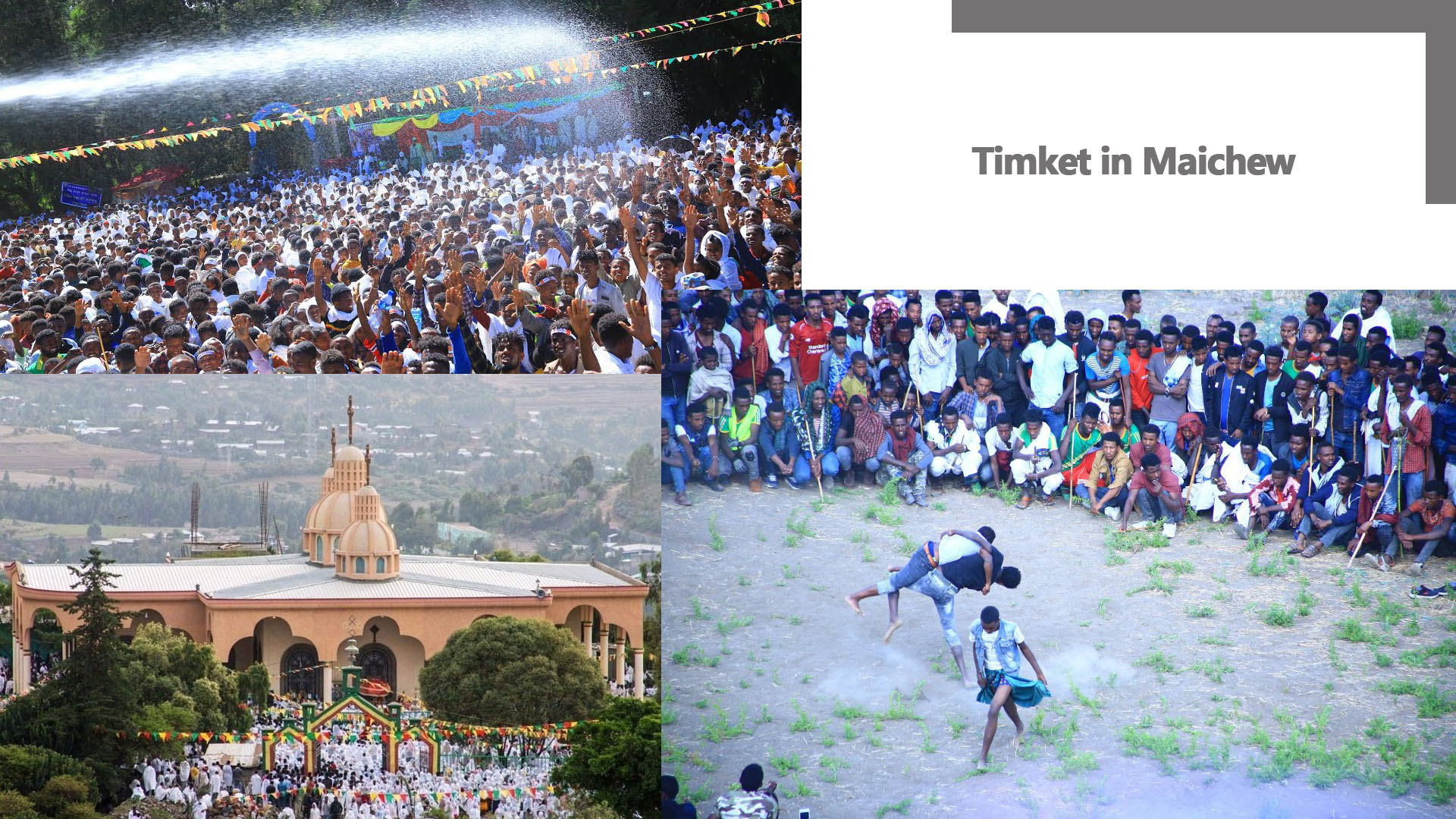
The procession is attended by chanting and dancing crowds in dazzling white traditional dress, which contrasts with the colors of the ceremonial robes and sequined velvet umbrellas of the priests. The Tabots stay overnight near the water and ceremonies continue overnight.
The main Timket celebration starts the next morning, when the ceremony begins with pre-sunrise rituals, which include the Kidan (Morning Prayer) – ኪዳን and the Kidasie (the divine clergy) – ቅዳሴ. Christians gather in the ceremonial place before they eat their breakfast. This is important. Then follows the blessing and sprinkling of blessed water on the assembled congregation in commemoration of Christ’s baptism.
It takes the better part of the day before the procession breaks up to return the Tabots to the churches in the afternoon. By afternoon, all the Tabots (except the Tabot from St. Michael’s Church), are returned to their churches in a procession with the priests and young people animated and leaping like King David in the Bible.
The third day, Archangel Michael Day falls on the 20th of January, the Tabots from St. Michael’s Churches are returned accompanied by cheerful crowds who sing psalms, hymns, and spiritual songs.
In Tigrai, it’s celebrated in the entire state. Special carnivals are arranged in Maichew, Axum, Mekelle, and other major towns and churches.

